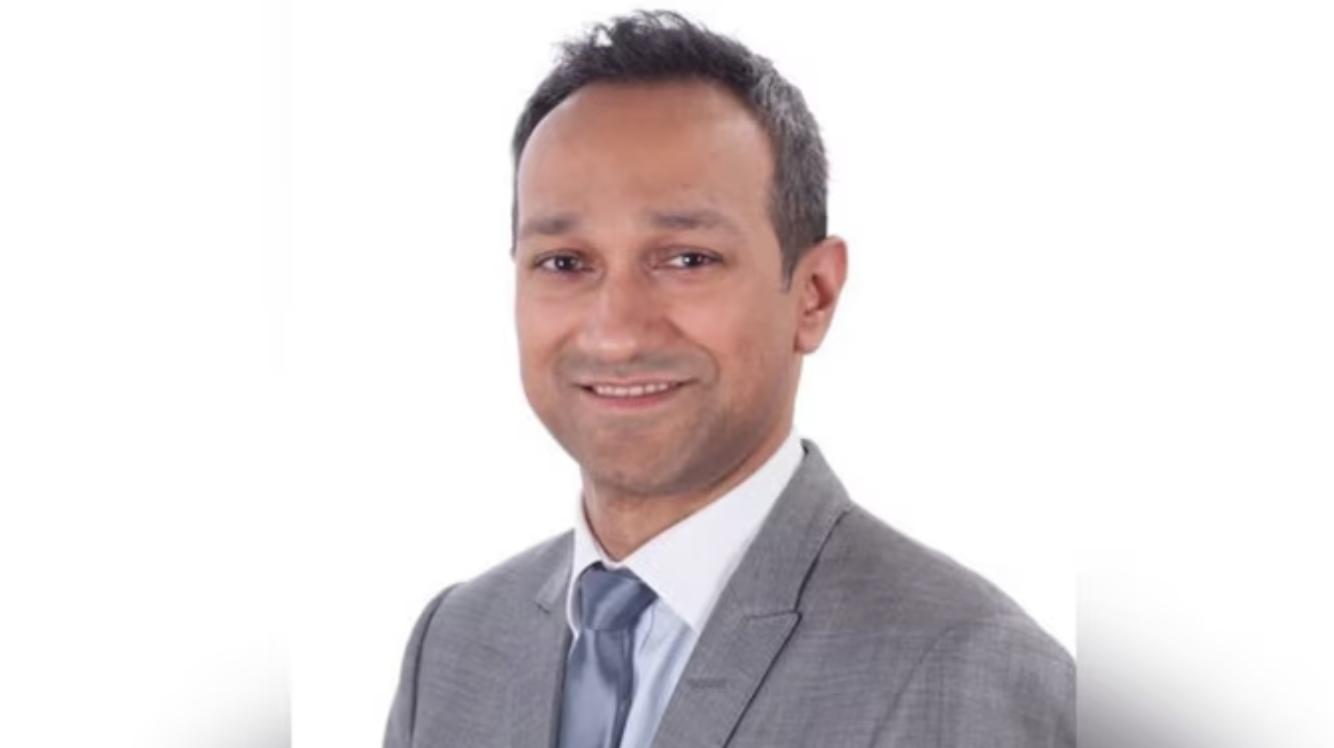Trailblazer Indian-origin doctor died due to medical negligence, finds UK probe

A UK-based Indian-origin doctor, Amit Patel, who has been described as a brilliant professional, had a rare autoimmune disorder called HLH and died in 2021. A two-year-long probe has revealed that Patel died due to medical negligence. He died of the disorder he was an expert in.
A UK coroner concluded a brilliant Indian-origin doctor died of a rare disease he was an expert on and blamed his death on medical negligence. The coroner has concluded, after a two-year-long investigation, that the Indian-origin doctor, Amit Patel, died due to a poorly done medical procedure without his explicit consent.
Professor Amit Patel was a trailblazer in stem cell transplantation and a “brilliant” Manchester-based National Health Service (NHS) Consultant Haematologist and a member of the haemophagocytic lymphohistiocytosis (HLH) National Multi-Disciplinary Team (MDT).
Haemophagocytic lymphohistiocytosis is a rare autoimmune disorder in which certain white blood cells build up in organs and destroy other blood cells.
Professor Amit Patel became part of “national guidance” on the disease where the most severe cases knew of the grave nature of HLH, according to The Telegraph. He even told his wife and general practitioner Shivani Tanna, that he feared dying from it.
His health problems were aggravated in August 2021. He was 43-year-old and was hospitalised in the city with HLH, probably HHL, and he passed away weeks later.
The investigation was initiated and postponed so that the coroner could hear evidence from the experts involved in the care of Professor Patel. The investigation started in April-May of this year and ended a few days ago.
“The deceased underwent an EBUS [endobronchial ultrasound] procedure on 2nd September 2021 following a recommendation by the national HLH MDT. This recommendation was based on an incomplete presentation of the deceased’s clinical case, and therefore should never have been made,” reads the Manchester Coroner’s judgement released on May 30, reports PTI.
But those treating Professor Patel did not know that he had developed a blood-clotting disorder, known as disseminated intravascular coagulation (DIC). After undergoing the procedure, he was left with a less than 10% chance of surviving. A blood vessel had “transected or ruptured”, reports The Telegraph.
“Had the national HLH MDT had all relevant and readily available information presented to them, the EBUS procedure would not have gone ahead on 2nd September 2021, and the deceased would not have died on 28th October 2021. Moreover, the deceased was not given the opportunity to (and therefore did not) provide informed consent on 2nd September 2021 for his EBUS procedure. These two factors more than minimally contributed to the deceased’s death on the balance of probabilities,” the coroner’s probe concluded.
PROFESSOR PATEL KNEW OF THE GRAVE DISORDER HE HAD
The coroner also noted the special bond and love between Patel and all those he knew were clearly visible in the court proceedings. The court heard how Patel knew of the grave disease.
“Professor Patel was described as an amazing human being. Whilst his educational and professional achievements will (rightly) be highlighted in his Curriculum Vitae, I am sure it is his achievements as a husband and father that shine brightest for those who love him,” the Coroner wrote.
The Coroner called Professor Patel, brilliant and a man “whose legacy will go beyond his academic and professional achievements. I hope in time that the memories you have all shared altogether will shine brightly beyond the period of time that has been subject to my investigations,” the report added.
Coroner Zak Golombek also said how Professor Patel was not a regular patient. He was also a father to two children. “In spite of his undoubted wealth of medical knowledge, he was primarily a husband and a father, and was not given the opportunity to consider the procedure itself, and its effects on his clinical course,” his reports said.
“Professor Patel’s death was caused by failures in his care, and thus his death was avoidable,” it ended with.
The Manchester University NHS Foundation Trust wrote how it had conducted a thorough examination of the time when the Professor was seeking treatment in the hospital. “We are committed to providing the best care possible for our patients, and we must apply the lessons learnt from this to our constant work to improve our patients’ safety, quality of care, and experience,” said Jane Eddleston, joint group chief medical officer for the trust.







